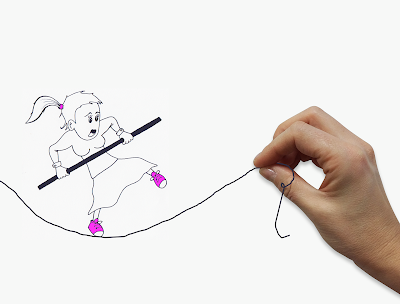ASSIGNMENT 1, PART A: Issues, Personal Interests, Opportunity Identification, Keyword Generator
 |
I consciously choose not to be married to technology and not to have a significant online presence on social media. I like holding real books in my hands rather than reading on an e-book. I do so for my health and sanity. I cannot sleep if I am looking at a screen late at night. I want the people with whom I spend time to feel their presence is appreciated and a priority. I think quiet time unplugged is good for the soul. And so here I am, feeling conflicted about exploring an increased use of technology in education in order to meet the needs of the 21st century learner when so much is coming out about the impact of screen time on developing brains. For example, Jan-Marino Ramirez, a neuroscientist at Seattle's Children's Hospital states that "heavy screen time can “rewire” the brain [but] we still don’t understand the long-term consequences of these brain changes..." (Sukel, 2017) Research shows that most millenials spend between 9-10 hours a day looking at screens and by increasing the exposure to technology in our classrooms, we are likely to increase this exposure exponentially without fully understanding the cognitive & behavioral impacts. I've felt this way ever since I saw Will Richardson speak at the CUEBC Conference in 2014. I understand the need for change he writes about in his book Why School? (2015). However, I think we need to tread lightly as we move forward.
I do agree with Richardson that we need to make schools amazing places to learn and technology offers endless possibilities for students and educators. Therefore, in an effort to explore some of these possibilities and to focus my thoughts on topics of interest and relevance, I have organized them in three categories:
- CONNECTEDNESS/INTERACTION: Teaching in French Immersion can be isolating. Technology can offer many opportunities to connect with native speakers or other French language learners in other schools from around the lower mainland, the province and even the world. Google Docs could potentially offer some interesting possibilities for writing collaborations in an authentic way. Saisha mentioned the "Global Read Aloud" which looks very interesting and I wonder what it would take to create this in French... Making better use of social media like Twitter with students could be an engaging way to increase interactions.
- CREATING & DOCUMENTING: Our school has purchased a green screen but very few people know how to use it. I would like to create more opportunities for students to collaborate and create digital investigative like reports. This year, I did a Genius Hour project with my students in SCHUM11 and used the blog function in our district's portal to track their research and learning. It was a rocky start but some have done awesome work. I have however lots of questions about how to help students navigate self directed learning because some have fallen through the cracks. While I blog, I am living what my students experienced when they started blogging. Also, I have been exploring e-portfolios and alternate ways of communicating student learning. Our district portal is not great and so the technology is not making things easier which it should. Designing digital learning maps would be really useful and practical but I am not sure how to go about doing this. Finally, in my role as ProD chair, maintaining a blog on articles, books, resources and providing tech support would also be an interesting undertaking for me.
- NAVIGATING/INTERPRETING INFORMATION: In both language arts and social studies, I have spent numerous hours teaching students critical thinking skills on how to navigate information on the net. My current students may be digital natives but they don't actually know how to do much on the net. I recently attended a workshop with Professor Ron Darvin from UBC who explained how to find truth in the digital age. He has many great tools but they are all in English. It would be interesting to see if these kinds of tools exist in French.
Blog post #1, done!
SOURCES:
The Adolescent Brain Cognitive Development Study. 2018. https://abcdstudy.org/index.html
Richardson, Will. 2015. Why School? https://www.amazon.com/Why-School-Education-Information-Everywhere-ebook/dp/B00998J5YQ
Sukel, Katie. 2017. "The Truth About Research on Screen Time". The DANA Foundation. http://www.dana.org/Briefing_Papers/The_Truth_About_Research_on_Screen_Time/
Image courtesy of Pixabay


What a wonderful first post! I really appreciate how you looked at all sides with regard to finding balance. You have identified several possible inquiry topics and keywords, and have included a cited image. I look forward to seeing where you will go next with your inquiry. One suggestion for future blog posts is to include live hyperlinks.
ReplyDelete